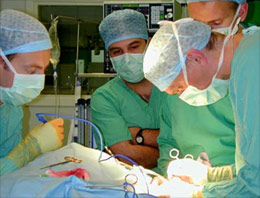
According to the background information that was provided by study author Dr.Daniel I. Sessler, chairman of Cleveland Clinic’s Department of Outcomes Research, all anesthetics interfere with the body’s natural ability to control its own temperature, but anesthesiologists are able to control body temperature during surgery.
However, if surgical patients are not actively warmed, they can develop hypothermia (decreased body temperature), which increases the risk of heart attack, infection, and prolongs recovery from surgery.â€
Sessler analyzed a number of studies on hypothermia and blood loss that were conducted from 1966 to 2006.
“When all the studies were evaluated together, the results clearly show that even very mild hypothermia increases blood loss and transfusion requirements by clinically important amounts,” Sessler said in a prepared statement.
Sessler noted that recent evidence suggests that blood transfusions may present more risks to patients than previously thought. The findings of this study suggest that a simple way to reduce transfusion-related risks is to avoid the need for transfusion in surgery patients by preventing a decrease in bldy temperature.
However, there still remain situations where induced hypothermia during surgery is absolutely necessary.
“In occasional patients, mostly those at risk for brain injury, hypothermia is perfectly appropriate. In these patients, physicians need to trade off the potential benefits and risks and choose the optimal approach for each individual,” Sessler concluded.
